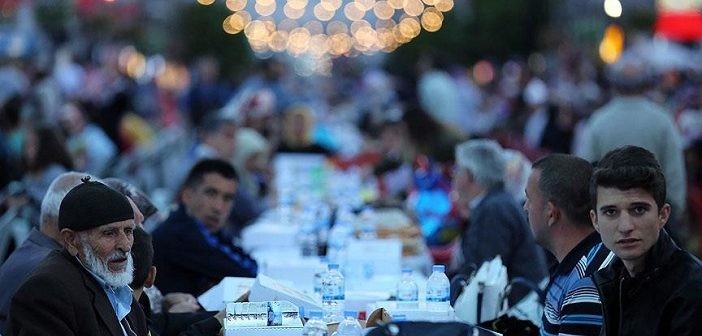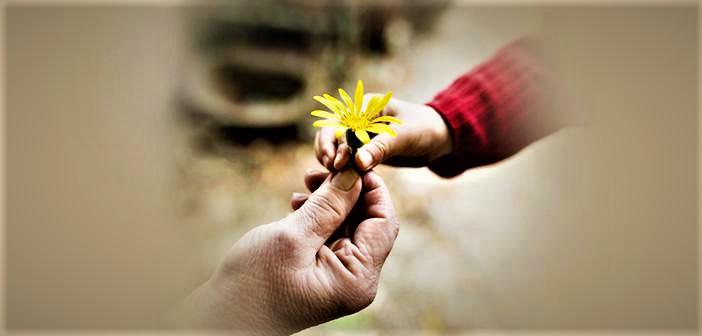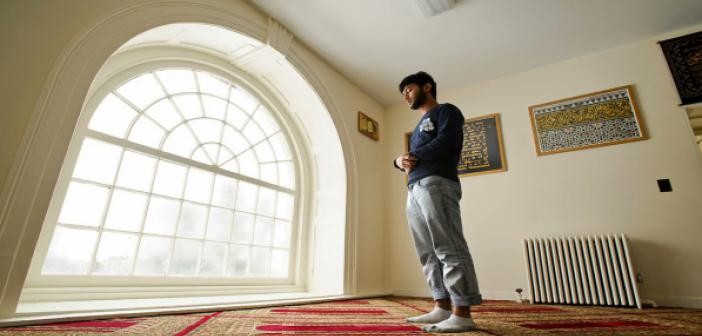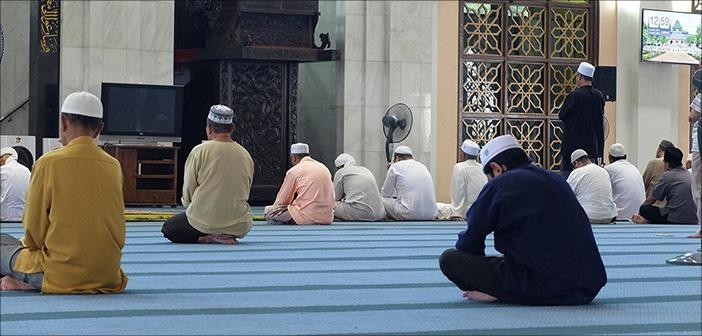
The Dreams and Ambitions of Tomorrow Should Not Make Us Forget Today
We are in a month of great mercy and blessings, alhamdulillah. Like every passing moment, this great blessing will be experienced once and will never return. Its nights, days, dawns, and the Night of Decree (Laylat al-Qadr) will be presented as a special package, and then it will bid farewell to this world, carrying with it the intentions, deeds, and states of being to meet us on the Day of Resurrection. Anas (may Allah be pleased with him) narrated:
The Prophet (peace and blessings be upon him) once drew some lines on the ground and then pointed to them, saying:
“These represent a person’s desires and ambitions, and this is their appointed time (of death). While a person is lost in their dreams, suddenly death appears before them.” (Bukhari, Riqaq 4)
On another occasion, he said:
“Ninety-nine types of calamities surround a human being. Even if they escape all of them, they will inevitably fall into old age.” (Tirmidhi, Qiyamah 22)
Humans are naturally inclined toward immediate pleasures that yield instant results. This is why they are often reluctant to engage in deeds whose rewards are deferred to the eternal life. A pleasure-centered mindset often clouds the mind and leads a person to become a slave to their desires. For such individuals, their aspirations and willpower are often directed toward short-term goals. However, Islam seeks to build a personality focused on the Hereafter. Most of its promises are oriented toward the afterlife. Yes, there are emphases and encouragements for the development of the world and the dominance of believers on earth, as establishing the rule of truth and justice on earth is a requirement of the trust (khilafah) given to humanity. However, this is a duty, not the ultimate goal. The ultimate goal is the pleasure of Allah, His mercy, and the manifestation of His beauty in Paradise. What is expected from a believer is to strive with the intention of reaching this lofty goal. The blessings and barakah of this effort stem from sound intentions born of a sound mind and heart. Therefore, it is necessary to free the mind and heart from diseases and the veils of heedlessness so that they may become a source and channel for such beautiful intentions.
To protect the mind, heart, senses, and emotions from being veiled, tarnished, or rusted, and to keep them functioning healthily and even to develop and perfect them, our Lord has provided numerous means and tools. One of these is the blessed climate of Ramadan, which we experience every year. In this spiritual spring, many good deeds and acts of worship can be performed together. It is a month of mercy, forgiveness, and healing for the hearts. It is a season of opportunities and possibilities. The central act of worship in this season is fasting. Fasting is a means of purification, spiritual health, and growth prescribed for all nations. It is a shield against negative emotions and behaviors, a ladder of taqwa (God-consciousness) that elevates our worth in the sight of Allah, and an opportunity to resist immediate pleasures and attain deeper emotions and eternal rewards. This great opportunity should not be postponed or missed. A sound mind demands this.
The first condition for benefiting from blessings properly is to be aware of them and to recognize their value. Gratitude for blessings ensures their permanence, continuity, and increase in barakah. To make the most of this blessed Ramadan, the following steps can be taken:
- Intention and Mental Preparation: Begin this blessed Ramadan with a sincere intention to make it special. The outcomes a servant achieves are greatly determined by their intentions. Intention is, in a sense, knocking on the door of divine mercy. The hadith, “Whoever fasts Ramadan out of faith and seeking reward from Allah, their past sins will be forgiven” (Bukhari, Sawm, 6), emphasizes that fasting Ramadan with a sincere intention and for the sake of Allah is a great means of spiritual purification. If not now, then when? Focus your heart on this.
- Setting Goals: For example, “I will perform my prayers on time and in congregation,” “In this month of the Quran, I will complete the recitation of Allah’s words with reflection and contemplation,” “I will not neglect the sunnah of seeking forgiveness in the pre-dawn hours,” “In these days when the Prophet (peace be upon him) was as generous as the wind, I will pay my zakat and increase my charity,” “Just as I fast with my stomach, I will also fast with my eyes, tongue, and ears; I will not watch things that displease Allah, whether real or virtual, I will not speak lies, haram, or vain words, and I will not hurt anyone,” “I will not pollute my soul through my ears,” “I will reflect on the manifestations of Allah’s power and majesty in the universe,” “I will be more diligent in following the sunnah of the Prophet (peace be upon him).” Setting such important goals will guide you toward a more blessed Ramadan.
- Increasing Good Deeds: Let your heart become a radar searching for what good can be done. Providing iftar for others, meeting the needs of the needy, seeking opportunities to help oppressed regions—all these will increase our Ramadan gains and bring divine mercy upon us in abundance.
- Organizing a Special Time Management for Ramadan: To benefit from the blessings of the night, retire to bed early and resolve to wake up at least an hour before Fajr. The blessings of the pre-dawn hours will make the day blessed. The impact of reading the Quran at Fajr is immense. Scheduling daily prayers at their earliest times is the backbone of this plan. Planning to have iftar in peace, with family, and sometimes with guests is also important. Tarawih prayers should be performed in mosques with pious imams.
- Seeking Laylat al-Qadr (The Night of Decree): Be especially vigilant in the last ten days of Ramadan. For those who have the means, performing i’tikaf (spiritual retreat) is a great blessing. Those who sincerely seek that night will never return empty-handed. Making the most of the nights of Eid is also an important means of living as a mindful believer. The Prophet (peace be upon him) gave this glad tidings to his ummah.
- Viewing Eid as a Communal Act of Worship, Not a Holiday: Eid should not be seen as a day of leisure but as a day of communal worship where joys are shared. Mothers, fathers, aunts, uncles, nephews, children, and grandchildren should come together, hand in hand and heart to heart, sharing happiness with one another. These blessed moments should not be wasted on other distractions.
In summary, the mercy of Ramadan, which begins with the intention to emerge pure from this climate of mercy and forgiveness and to attain closeness to our Lord, will be a spiritual nourishment filled with blessings for our lives and personalities. Our prayer to Allah is that He adorns our lives with the blessings of Ramadan and that our final breath coincides with the joy of reunion with Him.
Dr. Adem Ergul












